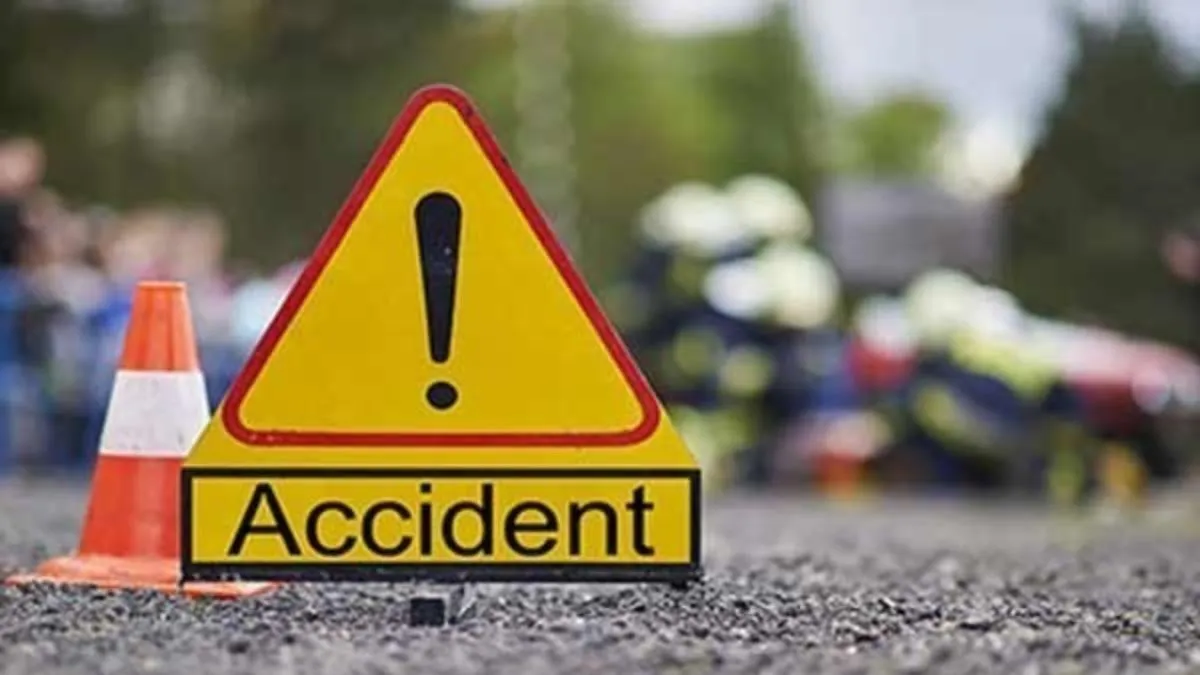The tragic loss of three young lives in a fatal car accident on the Delhi-Mumbai Expressway in Rajasthan highlights the devastating consequences of road accidents. This incident, which occurred in the early hours of Wednesday morning near Alwar, involved a collision between a car carrying three friends and a speeding truck. The impact was so severe that all three occupants of the car, Anish (22), Vikas (25), and Dheeraj (26), were killed instantly. Their sudden deaths serve as a stark reminder of the importance of road safety and the need for stricter enforcement of traffic regulations to prevent such tragedies. This event is unfortunately not an isolated incident; similar accidents, resulting in multiple fatalities, continue to occur across the nation, underscoring the urgency for comprehensive road safety improvements. The emotional toll on their families and friends is immeasurable, underscoring the human cost of these preventable accidents.
The Alwar Road Accident: Details and Aftermath
The Collision and its Impact
The accident, which occurred around midnight near the Rasgan and Burja areas, involved a car carrying Anish, Vikas, and Dheeraj, who were returning to Sikar after a trip to Delhi. The car was struck by a speeding truck attempting to overtake another vehicle. The impact was described by witnesses as immensely powerful, with the car becoming trapped beneath the truck. The force of the collision caused extensive damage to the car’s front end, resulting in the immediate and fatal injuries to all three occupants. Emergency services arrived swiftly, but extracting the bodies from the wreckage proved challenging. Post-mortem examinations were conducted at a local hospital after the bodies were recovered.
The Victims and their Circumstances
Vikas, one of the victims, had traveled to Delhi with his cousins to procure supplies for his electrical shop. The other two victims, Anish and Dheeraj, accompanied him on the trip back. The untimely deaths of these three young men have left their families and communities in mourning. Their loss serves as a painful reminder of the fragility of life and the unexpected nature of tragic events. The police are conducting a thorough investigation to establish the precise sequence of events leading up to the collision.
Investigating the Causes and Responsibilities
Police Investigation and Witness Accounts
Following the accident, the Naugawa police station took charge of the investigation. Initial findings suggest that the speeding truck played a significant role in the fatal accident. Statements from witnesses corroborated this, describing the truck’s reckless overtaking maneuver as the direct cause of the collision. Police are analyzing the truck driver’s actions, scrutinizing the evidence carefully to determine culpability. This includes analyzing witness testimonies, examining the vehicles involved, and investigating the driving history of both the car and the truck.
Identifying Contributing Factors
The accident highlights critical concerns about road safety in India, focusing on speeding and unsafe overtaking practices. The absence of adequate road infrastructure and insufficient enforcement of traffic laws also contribute to these risks. A full understanding of what occurred requires a comprehensive investigation not only into the actions of the drivers involved but also a broader examination of the existing road infrastructure and enforcement mechanisms in the region. This means examining visibility and signage at the accident site and looking into whether sufficient measures were taken to regulate traffic speeds. Addressing systemic issues that enable such recklessness is paramount in preventing future occurrences.
Preventing Future Accidents: A Call for Action
Improving Road Safety Measures
To prevent similar tragedies, a concerted effort is needed across multiple levels. Enhanced driver education is crucial to instill greater awareness of road safety practices, with a particular emphasis on speed limits, responsible overtaking, and defensive driving techniques. Simultaneously, stricter enforcement of traffic regulations is essential to deter reckless behavior. Regular checks on vehicle maintenance, such as braking systems and lights, could help identify problems that might increase the risk of accidents. The implementation and consistent maintenance of safer road infrastructure such as improved road markings, clearer signage, and better lighting are crucial to preventing future occurrences. These enhancements to visibility and clarity would undoubtedly help improve the safety of the route and enhance the safety for all who utilize this stretch of road.
Advocating for Systemic Changes
The government must play a key role in improving overall road safety by investing in improved infrastructure, enforcing stricter regulations, and providing comprehensive driver education programs. Public awareness campaigns focused on safe driving practices can play a significant role in changing behaviors and fostering a culture of responsibility on the roads. Promoting road safety shouldn’t simply rest on punitive actions but also preventative initiatives aiming at education and infrastructure improvements. It’s a societal responsibility that demands involvement from individuals, communities, and governments alike. The investment in road safety directly translates into saving lives and ensuring a more secure future for road users.
Takeaway Points
- The Alwar accident underscores the critical need for improved road safety measures in India.
- Speeding and unsafe overtaking practices were significant contributing factors to the tragedy.
- Stronger enforcement of traffic laws and improved driver education are essential for preventing similar accidents.
- Investing in better road infrastructure and public awareness campaigns are crucial for fostering a culture of road safety.
- This incident highlights the devastating human cost of road accidents and underscores the urgency for immediate action to prevent further losses.









